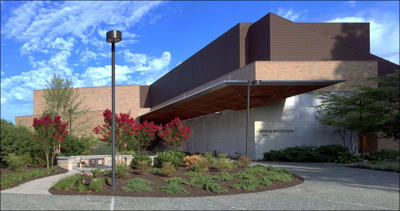Department of Embryology at Carnegie Institution for Science Turns to Qumulo
Getting 1PB data-aware scale-out NAS replacing EMC Isilon system
This is a Press Release edited by StorageNewsletter.com on November 24, 2016 at 2:35 pmQumulo, Inc., in data-aware scale-out NAS, announced that the Department of Embryology at the Carnegie Institution for Science has chosen Qumulo Core to deliver the performance, scalability and simplicity needed to keep pace with evolving research data requirements.
The Carnegie Institution for Science conducts a range of pure scientific research, from earth science and biology to magnetism and astronomy. The Institution’s Department of Embryology, established in 1913, is recognized for its innovative experimental studies, using molecular biology, genetic techniques and animal models to investigate developmental processes from single-cell embryos to whole organisms – research that has led to numerous scientific insights and three Nobel Prizes.
Embryology’s research data can be roughly divided into three categories: images collected from microscopes and other imaging systems, nucleotide sequencing data from next-generation sequencers, and the usual variety of common document files used to collect, report and present results. While document storage is relatively straightforward, the imaging and sequencing data present substantial challenges; data sets can consist of millions of kilobyte-sized files, or dozens of hundred gibabytes files. These files are accessed for processing and analysis from client computers running all of the major OSs (Windows, Mac OSX, Linux).
Embryology had relied on an EMC Isilon system as its primary storage. However, that system was approaching end-of-life, and a replacement became necessary to deal with the department’s increasing demands for storage, performance and capacity.
“One of our major replacement criteria was finding a storage system that could bridge that file volume and variety,” says Bill Kupiec, IT manager, Carnegie’s Department of Embryology. “It had to handle both the streaming needed for very large data sets and the fast processing required for millions of small files. That made locating a workable solution extremely challenging.“
Qumulo delivers flexible, fast and scalable storage together with the real-time analytics necessary for visibility into data usage. The combination provides the storage performance and scale the department’s team wanted, packaged in a simple and affordable appliance architecture that leverages commodity hardware.
After a search looking at more than a dozen vendors, that ability to combine performance, scalability and simplicity won. The department selected Qumulo’s QC208 hybrid storage appliances, deploying a four node, NFS and SMB-based cluster with almost 1PB of raw capacity.
With the Qumulo cluster in place, the department’s challenge of maintaining system performance across file types and sizes has rapidly become a thing of the past.
“Most storage vendors tout aggregate bandwidth, which isn’t relevant to us,” explained Mahmud Siddiqi, microscopy facility manager, Department of Embryology. “We care ab, how quickly each client can get files b, and forth from the storage system, or how it handles high volume from a metadata or directory standpoint. Virtually every storage system we looked at addressed our aggregate load, but all stumbled when pushed by a single client. Except for Qumulo.“
The team found that the Qumulo cluster was able to quickly traverse large directories, feed high file volumes and deliver or ingest large streaming files.
When the team has needed help in configuring the system, the Qumulo Care support has been a quick call – or an easy slack channel – away.
“Our interaction with the Qumulo support team has been great,” noted Kupiec. “It’s so refreshing to have multiple people quickly, knowledgeably and pleasantly come together to help us sort issues.“
The Qumulo team is helping to keep pace with this evolution through agile two-week software sprints that continually enhance the system, and help ensure it’s meeting the department’s needs.
“Our research organization falls between the cracks for most storage vendors, with giant imaging sets and millions of tiny genetic sequencing scraps. Finding a system that reasonably handled all our complex workflows was difficult, and in the end only Qumulo was the right fit,” concluded Kupiec.














 Subscribe to our free daily newsletter
Subscribe to our free daily newsletter

